Houthis Welcome Talks With Saudi Coalition, But In A Neutral Country
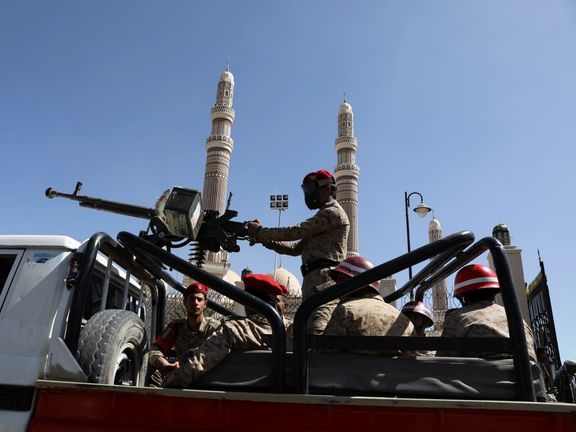
Yemen's Iran-backed Houthi group said Wednesday it would welcome talks with the Saudi-led coalition if the venue is a neutral country, including some Persian Gulf states.

Yemen's Iran-backed Houthi group said Wednesday it would welcome talks with the Saudi-led coalition if the venue is a neutral country, including some Persian Gulf states.
The Saudi-based Gulf Cooperation Council (GCC) plans to invite Yemeni parties including the Houthis for consultations in Riyadh this month, two officials in the region told Reuters on Tuesday.
"It is neither logical, nor fair that the host of the talks is also the sponsor of war and blockade," the Iran-aligned movement said in a statement on the official news agency.
Riyadh leads a military coalition that has been battling the Houthis for seven years in a conflict widely seen in the region as a proxy war between Saudi Arabia and Iran. Tehran has been saying in recent months that it wants to improve ties with regional countries, but has suspended talks with Saudi Arabia.
GCC members Oman, where some Houthi officials are based, and Kuwait, which hosted previous peace talks in 2015, would be a more neutral ground for such consultations.
The UN special envoy has been holding talks with Yemeni parties to build a framework for inclusive political negotiations to end the war that has killed tens of thousands of people and pushed Yemen to the brink of famine.
The alliance intervened in March 2015 after the Houthis ousted the internationally recognized government from the capital, Sanaa, in late 2014. The group says it is fighting a corrupt system and foreign aggression.
Reporting by Reuters
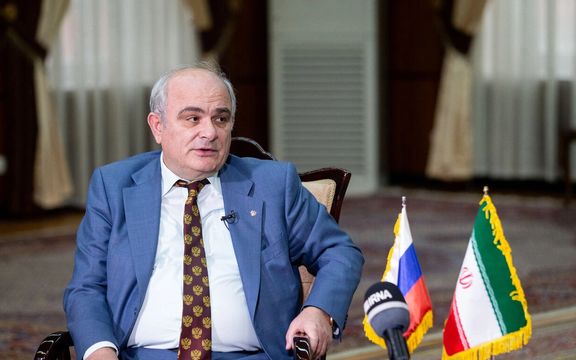
Russia's ambassador in Iran has said in an interview that Moscow will continue its "special military operation" in Ukraine until its objectives are attained.
Levan Dzhagaryan (Jegaryan), whose official title is "Ambassador Extraordinary and Plenipotentiary of the Russian Federation" has served in Tehran for over 10 years and speaks an arguably good Persian. His interview with Etemad daily published on Wednesday, March 16, hinged around the war in Ukraine and the Iran’s nuclear negotiations in Vienna.
The ambassador's interview coincided with the publication of remarks by an outspoken Iranian politician and the daughter of former President Akbar Hashemi Rafsanjani, Faezeh Hashemi, who has criticized Tehran for submitting to Russia and China's colonial desires.
Dzhagaryan insisted that "Russia has not attacked Ukraine," adding that "This is a special military operation." He had told Iranian reporters in a news conference last week not to use the word “war” in relation to Ukraine. Several Iranian politicians and hundreds of social media users criticized him at the time for trying to boss around Iranian media.
Faezeh Hashemi also criticized Iranian officials for behaving according to the Russian ambassador's wishes. Also mentioning Russia’s last-minute demands in the Vienna nuclear talks, Hashemi said: "Russia and China see Iran as their colony and agent. For how long we want to surrender to their blackmailing only because we wish to look anti-Western and because our own people do not support us?" she asked. She observed that "In Russia's attack on Ukraine, Iranian officials stood by Russia without condemning the war."
Hashemi criticized Iranian officials for blaming the United States for the invasion rather than questioning Putin's action. "And the Russian ambassador threatens Iranian journalists and tells them what to write." She suggested that the Iranian foreign ministry should have summoned the ambassador and pointed out his mistake.
When he was asked about violating Ukrain's territorial integrity, the Russian ambassador reminded the West's attack on Iraq in 2003 and asked whether the West had sought the Security Council's consent.
Dzhagaryan in his interview claimed that if Russia did not attack Ukraine, that country would have attacked Russia. Meanwhile, when he was told about the United Nations figures on civilian casualties, he said that Russia does not trust the UN and believes that it is not impartial. "We have also criticized UN Chief Guterres. They are the followers of the West," he maintained.
Meanwhile, he claimed that as Vladimir Putin has said, Ukraine is not a real country. It is a country that has been fabricated by Vladimir Lenin.
The ambassador further stressed: "We are not afraid of anyone. We are a nuclear power and we will continue our military operation until we attain our goals.
Speaking about the nuclear issue, the ambassador said Russia cooperates with Iran in three areas related to Tehran’s nuclear activities and the JCPOA, saying the United States has guaranteed that Russia and Iran may cooperate in those areas.
Dzhagaryan reiterated that no one can stop Iran from holding direct talks with the United States. At the same time, he said that the JCPOA should also serve Russia's interests. He also claimed that Russia has always defended Iran before and after the 2015 nuclear agreement. This comes while Russia never vetoed any UN sanction against Iran's nuclear program.
Meanwhile, he said Iran's former nuclear chief Ali Akbar Salehi has confessed that Iran owes a large amount of money to Russia.
In an interesting part of the interview, the Russian ambassador categorically denied that Russia ever invaded Afghanistan in the 1980s. "We went there to help," he claimed! And about Ukraine, when he was asked if any country with a historical territorial claim can violate the territorial integrity of a UN member state, he said: "It depends!" adding that "As far as Russia is concerned, we had no other solution."
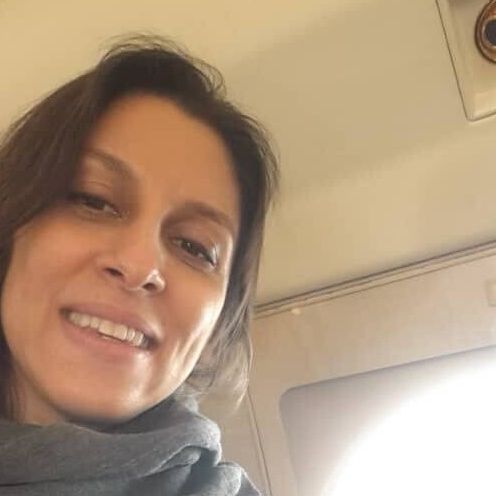
Iran's foreign minister says the payment of $530 million by Britain to free two detained dual citizens from Iran is not related to their release.
Foreign Minister Hossein Amir-Abdollahian said in a diplomatic reception on Wednesday in Tehran that Iran received the payment from the United Kingdom “a few days earlier” and the release of Nazanin Zaghari Ratcliffe and Anoosheh “was a coincidence.”
Iran’s government controlled media has been highlighting the receipt of the money for freeing “spies”.
The two were freed on Wednesday and headed back to Britain after long negotiations, according to Amir-Abdollahian. Both sides acknowledged that a 400-million-pound historic debt owed by the UK to Iran from mid-1970s was paid.
“I announce clearly that there is link between the release of the money and the individuals who had been arrested and tried on spying and security charges and their guilt was proven,” Iran foreign minister said.
There were numerous media reports, including in Iran's state-controlled media in the past six years about the link between Zaghari-Ratcliffe’s detention and the issue of the British debt to Iran.
In the past 43 years, the Islamic Republic has taken hostage or detained many foreigners and dual national who were exchanged for money or release of Iranians imprisoned in the West for illegal activities.
International human rights organizations say that the practice amounts to hostage taking to gain leverage against other countries.
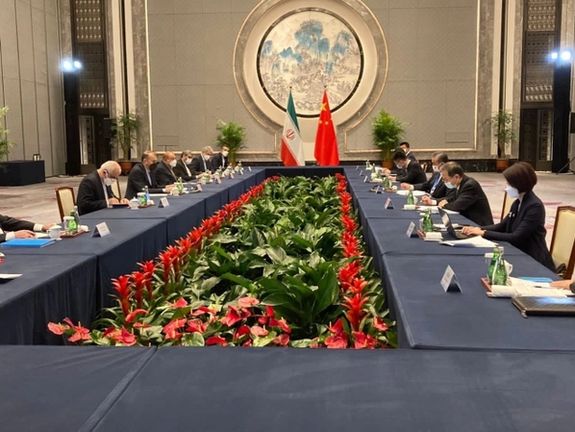
Tehran is ready for agreement on reviving the 2015 nuclear deal, assuming the United States can be realistic, Iran’s foreign minister said Tuesday.
Hossein Amir-Abdollahian reiterated Iran’s position as he discussed with Chinese counterpart Wang Yi the Vienna nuclear talks aimed at reviving the JCPOA (Joint Comprehensive Plan of Action).
“If the American side is realistic, we will finalize a good, strong, and lasting agreement with the support of all negotiating parties in Vienna,” Amir-Abdollahian said. The foreign minister said the recent pause in the 11-month negotiations between Iran and six world powers could “pave the way for the resolution of issues and the return of all parties to their nuclear deal commitments.”
Wang said China was “willing to strengthen coordination and cooperation with Iran to push the settlement of the Iranian nuclear issue in a direction conducive to regional peace and stability.”
Amir-Abdollahian and Russia foreign minister Sergei Lavrov presented a united front at a Moscow news conference Tuesday over the long-running talks. On Tuesday, an US official was cited by Reuters as accepting a request announced by Lavrov March 5 that any sanctions against Russia over the Ukraine crisis would not affect implementation of a revived JCPOA. Lavrov said Tuesday Moscow had received the assurances it wanted.
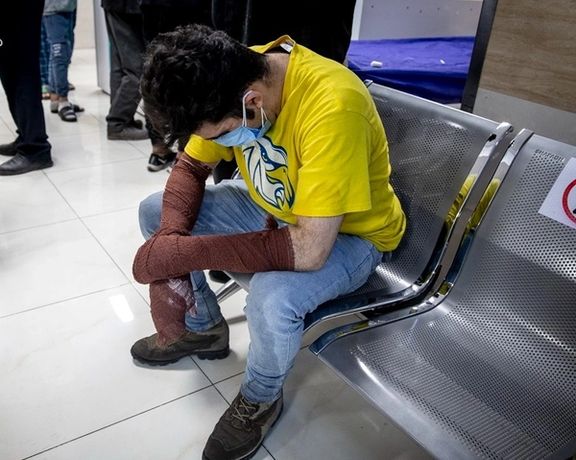
At least 19 people died and 2,800 injured in Iran Tuesday evening in Chaharshanbe Suri, the celebration of the annual fire festival ahead of Iranian New Year.
More than 30 of the injured are in critical condition, 171 had lost a limb, 880 suffered eye injuries, and 850 are suffering from different degrees of burns, the spokesman of the national emergency services, Mojtaba Khaledi, said Wednesday.
Home-made fireworks and improvised explosives, authorities have said, are the main cause of casualties, although most people only leap over bonfires and fireworks. State broadcasters carry safety warnings.
Hossein Rahimi, the Tehran chief police said Tuesday, even before most celebrations had begun, that more than 50 people had been arrested in the capital.
Police usually arrest people who celebrate the Chaharshanbe Suri with dance and drinks as the national tradition is frowned upon by Islamic hardliners who see it as a pagan relic.
Literally translated as festive or scarlet Wednesday, Chaharshanbe Suri, whose roots go back beyond ancient Zoroastrianism, is a prelude to Nowruz holidays and is marked on the eve of the last Wednesday of the final Iranian month.
Nowruz is celebrated across Asia with similar traditions at the time of the spring equinox, when the day becomes longer than the night. With ‘Chunfen,’ millions of Chinese head for outdoor picnics.
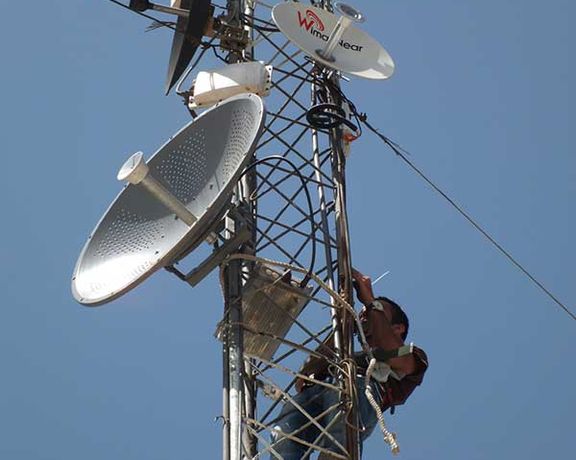
Reports from Iran say Internet and mobile phone networks have experienced a long disruption since Monday in several cities and towns around the capital Tehran.
The disruption has created numerous problems for citizens and businesses in cities across the greater Tehran province, such as Eslamshahr, Parand, Damavand and Robatkarim, during the last few working days before Nowruz, the Iranian New Year holidays begin on March 20.
Ghorban-Ali Qomi, Director General of Public Relations of Tehran Province, said on Tuesday that cables caught fire in one of the communication hubs due to an unknown reason, which is being investigated.
Earlier in March, authorities cited a similar reason as Internet services on mobile phones and landlines were disrupted in the Iranian capital Tehran and the nearby city of Karaj.
The government blocks thousands of websites and top social media apps in a bid to control the flow of information.
Iranians were outraged this month when a group of 18 hardliners in a parliament committee claimed that they had ratified a bill to further restrict internet and social media access.
Iranian authorities have often not revealed the real cause for such incidents. Some people reacted to the disruption by blaming the authorities, saying the outage was a trial run for the plan to further restrict internet and social media, which hardliners are pushing for.